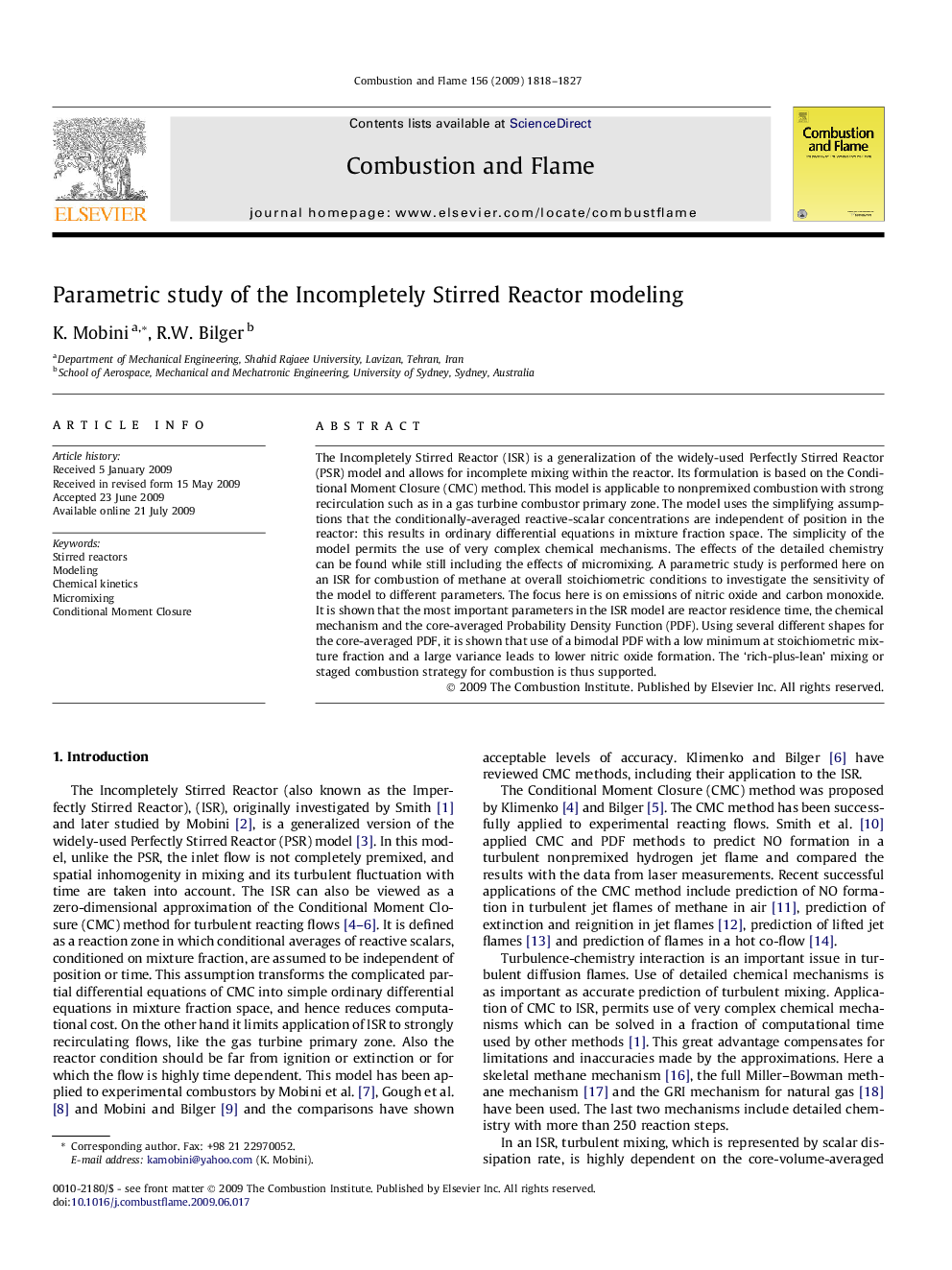| Article ID | Journal | Published Year | Pages | File Type |
|---|---|---|---|---|
| 166844 | Combustion and Flame | 2009 | 10 Pages |
The Incompletely Stirred Reactor (ISR) is a generalization of the widely-used Perfectly Stirred Reactor (PSR) model and allows for incomplete mixing within the reactor. Its formulation is based on the Conditional Moment Closure (CMC) method. This model is applicable to nonpremixed combustion with strong recirculation such as in a gas turbine combustor primary zone. The model uses the simplifying assumptions that the conditionally-averaged reactive-scalar concentrations are independent of position in the reactor: this results in ordinary differential equations in mixture fraction space. The simplicity of the model permits the use of very complex chemical mechanisms. The effects of the detailed chemistry can be found while still including the effects of micromixing. A parametric study is performed here on an ISR for combustion of methane at overall stoichiometric conditions to investigate the sensitivity of the model to different parameters. The focus here is on emissions of nitric oxide and carbon monoxide. It is shown that the most important parameters in the ISR model are reactor residence time, the chemical mechanism and the core-averaged Probability Density Function (PDF). Using several different shapes for the core-averaged PDF, it is shown that use of a bimodal PDF with a low minimum at stoichiometric mixture fraction and a large variance leads to lower nitric oxide formation. The ‘rich-plus-lean’ mixing or staged combustion strategy for combustion is thus supported.
